Precision Health
Precision health holds a lot of promise to revolutionize the management of healthcare. Instead of a one-size-fits-all approach to health, it can help us cater to the needs of each patient based on their unique genetic fingerprint and lifestyle indicators.
At Qatar Foundation, we’re leading the development of precision health for the nation. These are some of the few milestones we’re hoping to reach in the coming months and years:
- Reaching 100,000 unique genetic maps from the local population
- Genetic mapping of specific disease cohorts: COVID-19, autism, diabetes, cancer, cardiovascular disease
- Establishing diagnostic protocols to identify patients in disease areas
- Completing pharmacogenetic treatment protocols in selected disease areas
Insights for a Healthier World
QF researchers unveiled new studies into a tumor-based molecular signature that can predict clinical outcomes for patients with seven different cancer types, with the project being led by QBRI and QCRI together with QF’s Sidra Medicine and Hamad Medical Corporation.
And Sidra Medicine published a groundbreaking study into how COVID-19 vaccines act, which identifies the molecular mechanisms that can predict the severity of the disease and can support the development of new vaccines, as well as patient treatments.
The women’s and children’s hospital and medical research center – which, together with four other hospitals in Qatar, was placed among the world’s top 250 Academic Medical Centers in a survey by Brand Finance that featured input from 2,500 global healthcare experts – also launched a benevolent healthcare grant, ‘Precision Medicine for All’.
It will allow young patients of all backgrounds – particularly those with genetic, rare, or hard-to-diagnose conditions – to access the cutting-edge diagnostics at Sidra Medicine.
QF researchers unveiled new studies into a tumor-based molecular signature that can predict clinical outcomes for patients with seven different cancer types, with the project being led by QBRI and QCRI together with QF’s Sidra Medicine and Hamad Medical Corporation.
And Sidra Medicine published a groundbreaking study into how COVID-19 vaccines act, which identifies the molecular mechanisms that can predict the severity of the disease and can support the development of new vaccines, as well as patient treatments.
The women’s and children’s hospital and medical research center – which, together with four other hospitals in Qatar, was placed among the world’s top 250 Academic Medical Centers in a survey by Brand Finance that featured input from 2,500 global healthcare experts – also launched a benevolent healthcare grant, ‘Precision Medicine for All’.
It will allow young patients of all backgrounds – particularly those with genetic, rare, or hard-to-diagnose conditions – to access the cutting-edge diagnostics at Sidra Medicine.
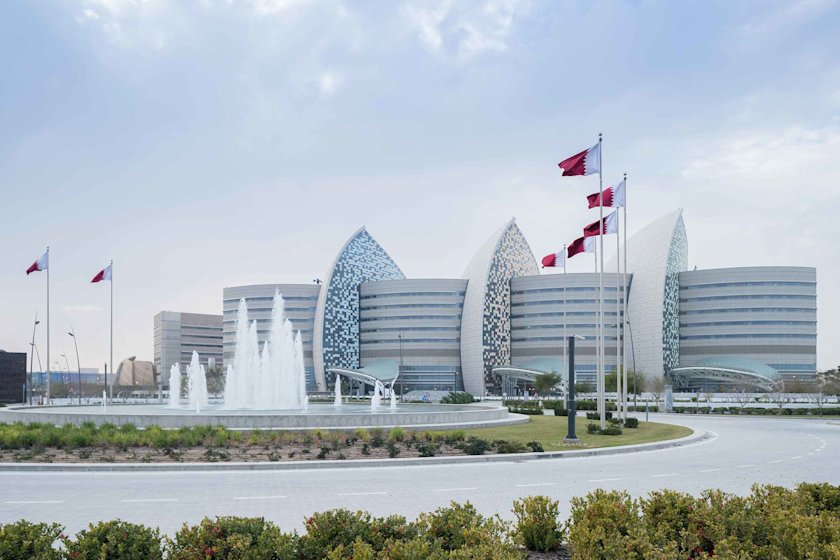
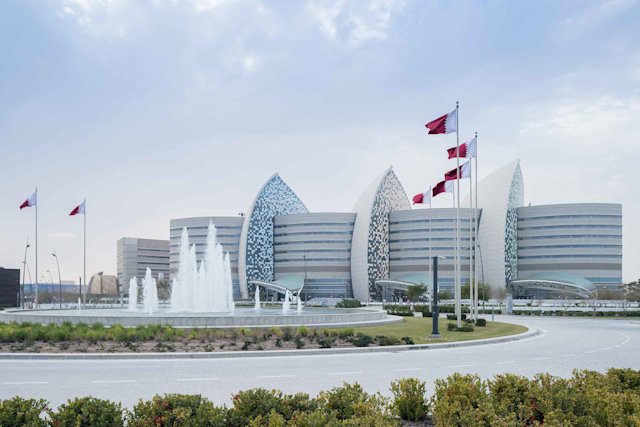
Through this grant, we are generating a change that will positively impact the lives of hundreds of patients living with rare or complex diseases in Qatar.
Awards and Advances
Accolades came the way of two medical researchers from QF in June as they claimed national and international honors.
Dr. Isra Marei of QF partner university Weill Cornell Medicine-Qatar claimed the prestigious Paul Dudley White International Scholar Award, recognizing her work in cardiovascular and brain health science; while the university’s Professor of Medicine and Assistant Dean for Clinical Investigations, Dr. Rayaz Malik, was ranked as Qatar’s number one researcher in medicine – and among the top 10,000 in the world.
Elsewhere in the medical field, QF’s Sidra Medicine published the first regional case study on monogenic obesity – a rare and severe form of obesity affecting children – with the aim of identifying the condition’s triggers and way of combating it.
Meanwhile, QF-founded Qatar Career Development Center concluded the fifth edition of its My Career, My Future program, which gave 90 students from Qatari high schools immersive, hands-on experience of working in 13 organizations to support their future career paths.
Accolades came the way of two medical researchers from QF in June as they claimed national and international honors.
Dr. Isra Marei of QF partner university Weill Cornell Medicine-Qatar claimed the prestigious Paul Dudley White International Scholar Award, recognizing her work in cardiovascular and brain health science; while the university’s Professor of Medicine and Assistant Dean for Clinical Investigations, Dr. Rayaz Malik, was ranked as Qatar’s number one researcher in medicine – and among the top 10,000 in the world.
Elsewhere in the medical field, QF’s Sidra Medicine published the first regional case study on monogenic obesity – a rare and severe form of obesity affecting children – with the aim of identifying the condition’s triggers and way of combating it.
Meanwhile, QF-founded Qatar Career Development Center concluded the fifth edition of its My Career, My Future program, which gave 90 students from Qatari high schools immersive, hands-on experience of working in 13 organizations to support their future career paths.
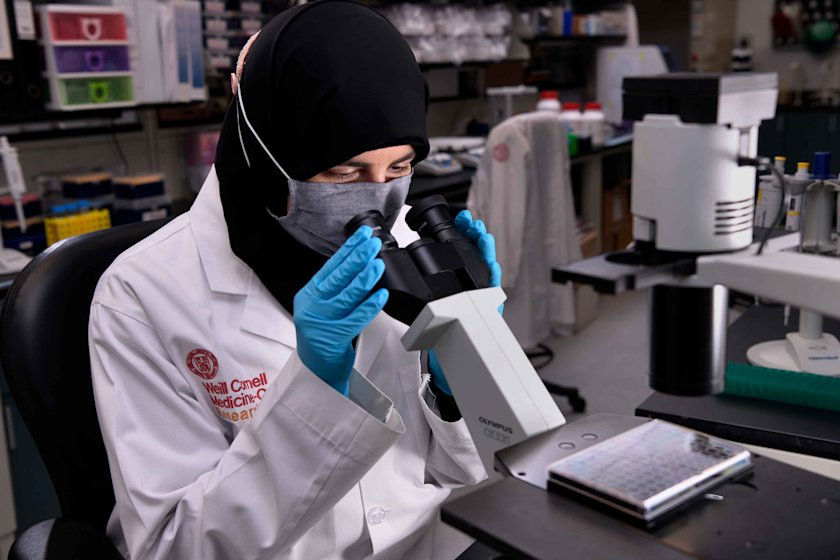
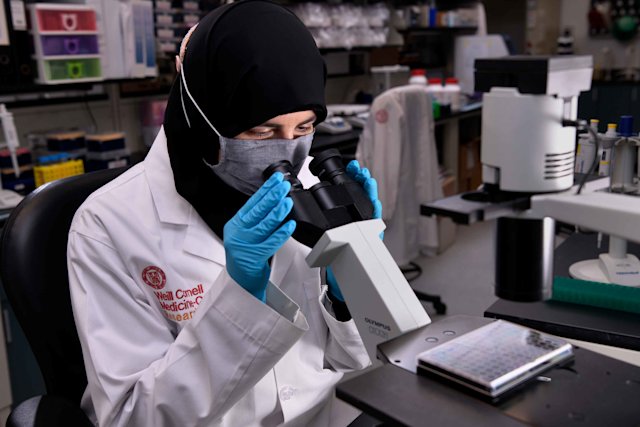
I am honored and humbled to be able to work in such a fascinating field of research that has a beneficial impact on human health.
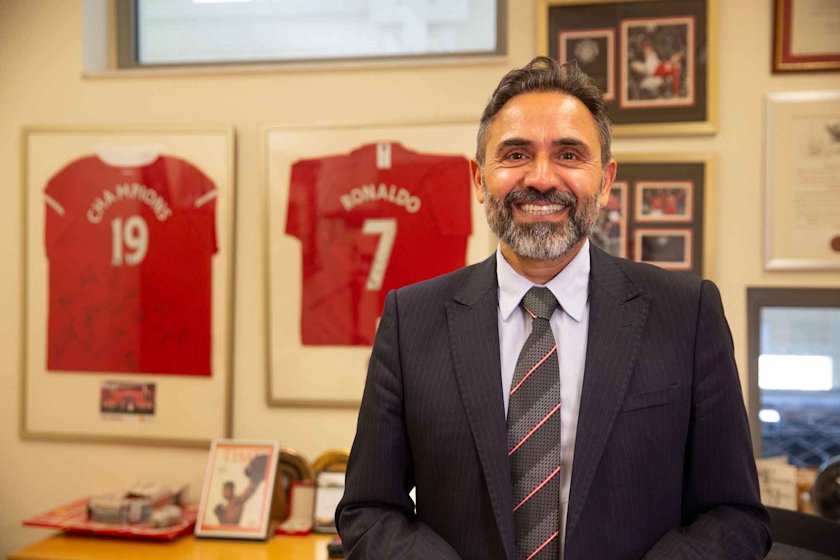
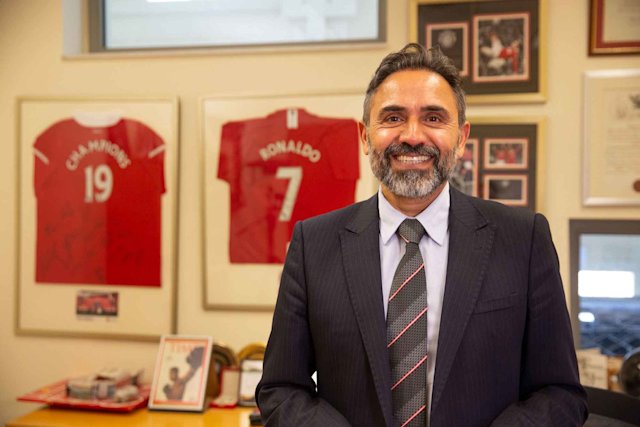
Insights for Wellbeing
Fresh insights into the role of cholesterol in treating neurodegenerative and neurodevelopmental disorders were provided in July with the publication of research from QF member Hamad Bin Khalifa University’s (HBKU) Qatar Biomedical Research Institute (QBRI).
And researchers from HBKU’s College of Health and Life Sciences, QF’s Sidra Medicine, and Germany’s Brandenburg Medical School collaborated on a study – supported by QF’s Qatar Biobank – that analyzed genomic data from people in Qatar, to identify gene variations affecting the production of antibodies that cause allergic reactions to seemingly harmless substances.
Advancing Ambitions
The summer also saw current and former QF students collecting awards and accolades, with Carnegie Mellon University in Qatar (CMU-Q) students collecting a top prize in a Qatar Development Bank competition with their idea for 3D-printed vegetables; and GU-Q student Elene Chkhiadze being awarded a Pulitzer Center Fellowship to train as a religious journalist.
VCUarts Qatar alumna Moza Al-Suwaidi won a gold award at the University & College Designers Association Design Awards for her work on an exhibition showcasing graduating students’ work; while two Weill Cornell Medicine-Qatar (WCM-Q) alumni now working at elite US medical institutions were honored for their work in research and mentorship.
Fresh insights into the role of cholesterol in treating neurodegenerative and neurodevelopmental disorders were provided in July with the publication of research from QF member Hamad Bin Khalifa University’s (HBKU) Qatar Biomedical Research Institute (QBRI).
And researchers from HBKU’s College of Health and Life Sciences, QF’s Sidra Medicine, and Germany’s Brandenburg Medical School collaborated on a study – supported by QF’s Qatar Biobank – that analyzed genomic data from people in Qatar, to identify gene variations affecting the production of antibodies that cause allergic reactions to seemingly harmless substances.
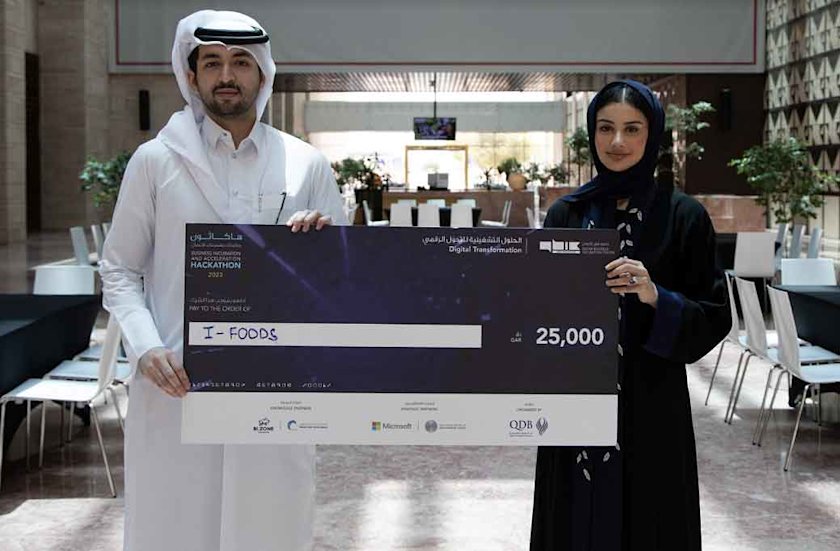
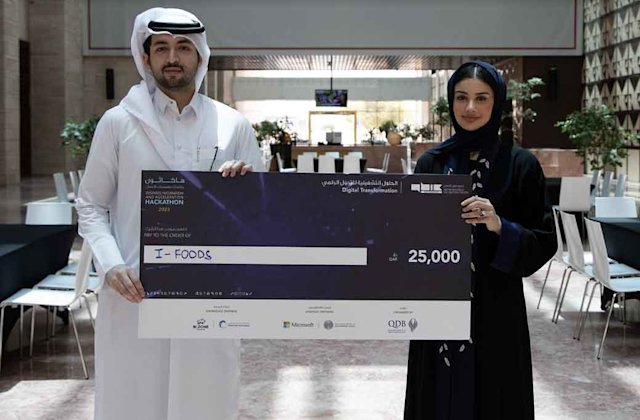
We could potentially print food in bulk, greatly reducing the time and money it takes to grow fruit and vegetables – it’s limitless what we could do.
A Path to Solutions
A roadmap for action by policymakers on decreasing childhood obesity in Qatar was produced in November, as QF’s global healthcare initiative the World Innovation Summit for Health presented a new report into this major health challenge.
Developed with the Ministry of Public Health, the report recommended policies including restricting the marketing of high-fat, high-sugar, and high-salt food and drinks to children, taxing unhealthy food and drinks, and providing better access to affordable, healthy food.
Elsewhere, studies by HBKU’s Qatar Biomedical Research Institute refuted suggestions of a link between marriage within families and autism, and compared cancer trends in Arab countries with the rest of the world to support precision treatments; while QF’s Sidra Medicine launched a new pediatric cancer research program and hosted Qatar’s first Young Scientists Symposium, as well as the latest edition of its Precision Medicine and Functional Genomics Conference.
And from human to animal wellbeing, QF’s Equine Veterinary Medical Center launched a series of educational seminars designed to provide new insights into equine health for horse owners, breeders, and industry professionals.
A roadmap for action by policymakers on decreasing childhood obesity in Qatar was produced in November, as QF’s global healthcare initiative the World Innovation Summit for Health presented a new report into this major health challenge.
Developed with the Ministry of Public Health, the report recommended policies including restricting the marketing of high-fat, high-sugar, and high-salt food and drinks to children, taxing unhealthy food and drinks, and providing better access to affordable, healthy food.
Elsewhere, studies by HBKU’s Qatar Biomedical Research Institute refuted suggestions of a link between marriage within families and autism, and compared cancer trends in Arab countries with the rest of the world to support precision treatments; while QF’s Sidra Medicine launched a new pediatric cancer research program and hosted Qatar’s first Young Scientists Symposium, as well as the latest edition of its Precision Medicine and Functional Genomics Conference.
And from human to animal wellbeing, QF’s Equine Veterinary Medical Center launched a series of educational seminars designed to provide new insights into equine health for horse owners, breeders, and industry professionals.
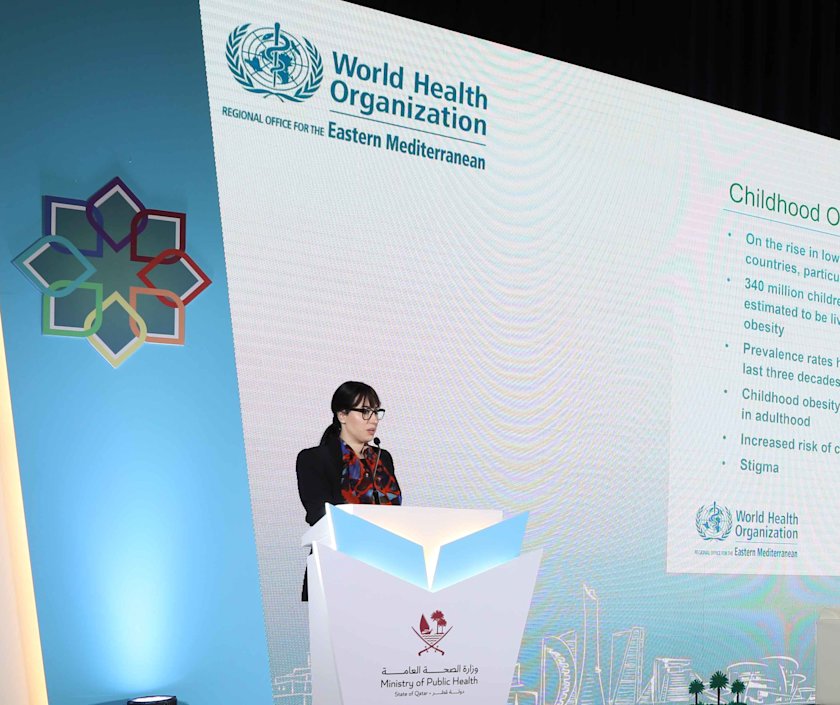
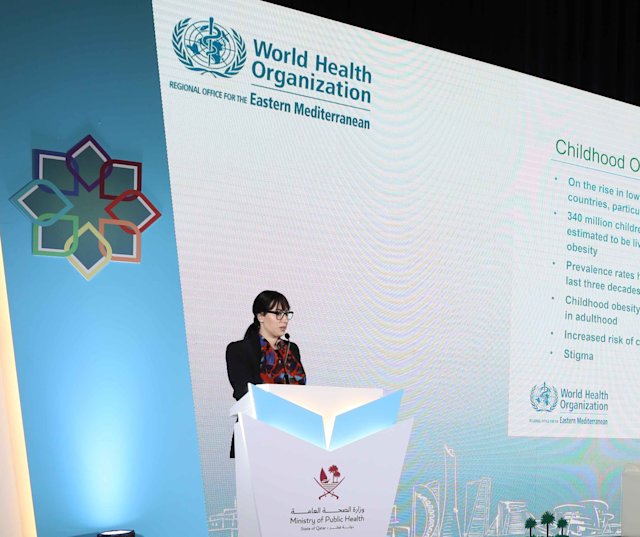
By understanding the region’s unique cancer landscape, targeted interventions can be developed, including early vaccination programs and detection initiatives.
Research and Resolve
Taking a longstanding relationship to a new level, QF’s global healthcare initiative WISH and the World Health Organization (WHO) announced a new strategic partnership focusing on advancing research for a healthier world.
At the center of the partnership will be three WHO-led collaborative research projects on topics that demand the urgent attention of the global healthcare community: eliminating tuberculosis, palliative care, and the protection of health amid armed conflict. The findings will be discussed at the WISH 2024 Summit, the latest edition of WISH’s biennial gathering of global healthcare expertise.
“Our expanding collaboration with WISH builds on a track record of impact and will further demonstrate our joint resolve to tackle pressing global health issues,” said Dr. Tedros Adhanom Ghebreyesus, Director-General of WHO.
“We look forward to contributing to the evidence base and are very much committed to the partnership.”
WISH 2024 will take place at Qatar National Convention Centre in Doha from 13-14 November 2024, and those wishing to register their interest can do so at www.wish.org.qa
Taking a longstanding relationship to a new level, QF’s global healthcare initiative WISH and the World Health Organization (WHO) announced a new strategic partnership focusing on advancing research for a healthier world.
At the center of the partnership will be three WHO-led collaborative research projects on topics that demand the urgent attention of the global healthcare community: eliminating tuberculosis, palliative care, and the protection of health amid armed conflict. The findings will be discussed at the WISH 2024 Summit, the latest edition of WISH’s biennial gathering of global healthcare expertise.
“Our expanding collaboration with WISH builds on a track record of impact and will further demonstrate our joint resolve to tackle pressing global health issues,” said Dr. Tedros Adhanom Ghebreyesus, Director-General of WHO.
“We look forward to contributing to the evidence base and are very much committed to the partnership.”
WISH 2024 will take place at Qatar National Convention Centre in Doha from 13-14 November 2024, and those wishing to register their interest can do so at www.wish.org.qa
We remain committed to creating a platform where evidence-based research can inform global health practices.
Legacy, Interconnectivity, Creativity
Elsewhere within QF’s partner universities, Northwestern University in Qatar examined the social, cultural, and economic legacy of the FIFA World Cup Qatar 2022™, 12 months after the final whistle blew on the greatest tournament of all time.
Past and present Weill Cornell Medicine-Qatar (WCM-Q) students also marked a milestone as they faced off in a debate on TikTok and mental health on the 15th anniversary of the university’s Debate Club; while WCM-Q’s Innovations and Technologies for Precision Health student club hosted its inaugural event, welcoming experts to demonstrate how collaboration serves innovation.
The interconnectivity between energy, culture, and society in the pursuit of sustainability was among the themes at GU-Q’s Global Energy Cultures public forum, held in collaboration with Msheireb Museums, which saw energy experts and scholars swap perspectives with artists and filmmakers.
And Virginia Commonwealth University School of the Arts in Qatar launched its School Visits Program, where creative experts from the university inspired school students to immerse themselves in art and design, as well as opening doors for young people to enter the world of vinyl artistry.
Elsewhere within QF’s partner universities, Northwestern University in Qatar examined the social, cultural, and economic legacy of the FIFA World Cup Qatar 2022™, 12 months after the final whistle blew on the greatest tournament of all time.
Past and present Weill Cornell Medicine-Qatar (WCM-Q) students also marked a milestone as they faced off in a debate on TikTok and mental health on the 15th anniversary of the university’s Debate Club; while WCM-Q’s Innovations and Technologies for Precision Health student club hosted its inaugural event, welcoming experts to demonstrate how collaboration serves innovation.
The interconnectivity between energy, culture, and society in the pursuit of sustainability was among the themes at GU-Q’s Global Energy Cultures public forum, held in collaboration with Msheireb Museums, which saw energy experts and scholars swap perspectives with artists and filmmakers.
And Virginia Commonwealth University School of the Arts in Qatar launched its School Visits Program, where creative experts from the university inspired school students to immerse themselves in art and design, as well as opening doors for young people to enter the world of vinyl artistry.


Nothing could compare to the lessons I learned in my work during the World Cup, that hard work and dedication could take you so far.